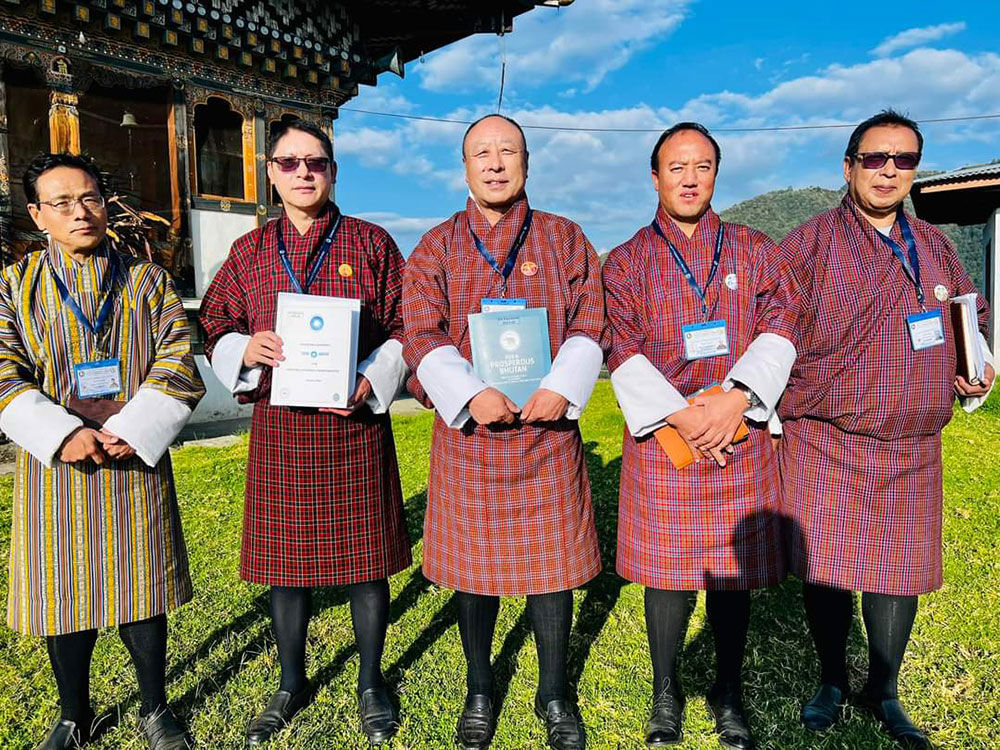Thinley Namgay
Voters of Udzorong are expected to play a crucial role in determining the fate of political parties vying for success in the Kanglung-Samkhar-Udzorong constituency in Trashigang for the primary election.
Udzorong, being the largest gewog with more voters, currently does not have a candidate. The party that secures Udzorong’s support is likely to dominate this constituency. Except for Druk Phuensum Tshogpa’s (DPT) candidate, candidates from the other four parties are from Kanglung gewog, raising the possibility of votes splitting among these four candidates.
The Kanglung-Samkhar-Udzorong constituency is highly contested, with four candidates vying for ministerial positions and one for the position of Prime Minister. In the past three National Assembly Elections, this constituency didn’t witness all candidates of similar competence, popularity, and work experience.
DPT’s candidate, Karma Chhophel, is the lone candidate from Samkhar and is likely to maintain an upper hand in the gewog. In the last National Council election, Udzorong and Kanglung gewogs had the maximum number of voters compared to Samkhar. If Karma Chhophel could secure the maximum votes from his gewog and 20 to 30 percent of votes from Udzorong, he could help boost DPT’s chances of sailing through to the general round.
The constituency has 12,415 registered voters, comprising 6,017 males and 6,398 females. Of the total, 3,968 opted for postal ballots, including 56 overseas voters. Trashigang thromde is also included in this constituency.
Popularity of Candidates
As a former land commission secretary and a seasoned bureaucrat, Bhutan Tendrel Party’s (BTP) President Pema Chewang has already traveled to this constituency and is popular among the people.
Currently, Pema Chewang’s non-partisan views and BTP’s primary manifesto of improving public service delivery are well-received by many. Pema Chewang’s leadership as the head of the Eastern Covid-19 Taskforce was appreciated by locals. Voters are also tempted by the opportunity to have a Prime Minister from their dzongkhag.
Druk Nyamrup Tshogpa’s (DNT) candidate Tenzin Namgyel is a former General Manager of Dungsam Cement Corporation Limited and participated in the 2018 National Assembly election. He is not short of supporters in the constituency. He lost by only two votes in 2018 against the then DPT candidate Dr Samdrup R Wangchuk.
As a seasoned journalist with more than 14 years of work experience, Tenzin Namgyel has good knowledge about the country’s situation. Tenzin Namgyel is also active on social media, engaging with voters and repeatedly speaking about the pledges of his party at the local level.
DPT’s candidate Karma Chhophel served as the Managing Director of 118MW Tangsibjee Hydro Energy Limited until 2018. He is an expert in the field of hydropower and has more than 30 years of work experience in civil service, corporations, and international agencies.
This election, DPT’s focus is on economic recovery with development of hydropower being the key manifesto of the party. Karma Chhophel is a potential candidate to execute DPT’s hydropower ventures. For the past three elections, DPT has won twice from this constituency in 2008 and 2018.
Druk Thuendrel Tshogpa’s (DTT) candidate Tshering Dorji (PhD) has the highest qualification among the candidates. He is one of the founding members of the party and the drafter of DTT’s manifesto. He worked for more than 20 years in the Ministry of Agriculture and served as Director for four years at the Mountain Hazelnuts Venture Private Limited.
Moreover, DTT’s unique economic development method called “sunomics” and public consultation are becoming popular among the voters.
People’s Democratic Party’s (PDP) candidate Norbu Wangchuk, a former economic affairs minister and education minister between 2013 and 2018, has a reputation in the constituency. He fulfilled the majority of his pledges, particularly in the Udzorong gewog during his tenure.
PDP’s initiatives, such as central schools, water projects, bridges, and farm roads, have benefited the villagers in this gewog. Norbu Wangchuk is also actively engaged on social media platforms with the voters.
What are their pledges?
Blacktopping and the construction of roads, improving facilities for schools and health, providing drinking and irrigation water, farm mechanisation, chain-link fencing, crop insurance, cold storage facilities, a market for farm produces, and easy access to loans are common manifestos in all parties.
However, there are some unique pledges that are likely to make a difference.
BTP pledged to establish people-centric and integrated public service delivery center called “Mimang Zhaptog Teywa” in each gewog, increase the average annual household income by seven-fold from the existing Nu 406,134 to Nu 3 million (M) by the end of 2029, and allow the harvesting of timber on private land for commercial purposes.
DNT promised to ensure interest and collateral-free loans below Nu 500,000 and business income tax exemption for annual income of Nu 300,000 and below, and mid-day meals for rural schools, among other initiatives.
DPT promised to review the country’s agricultural policy, undertake a nationwide land management exercise, identify Special Agricultural Zones, and strengthen Bhutan Development Bank (BDBL) for easy access to loans, among others.
DTT pledged to provide both chain-link fencing combined with electric fencing for a minimum of five km in each chiwog, a 50 percent subsidy on power tillers, use drone technology for crop surveillance, and compensation for those whose lands are affected by farm roads, among other initiatives.
PDP pledged to allocate an annual development grant of Nu 2M to each gewog and provide 80 percent loan equity for the purchase of one utility vehicle or farm machinery per family. The party also promised to review and establish central schools as needed.


